9 start with M start with M
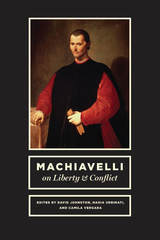
With Machiavelli on Liberty and Conflict, David Johnston, Nadia Urbinati, and Camila Vergara have brought together the most recent research on The Prince, with contributions from many of the leading scholars of Machiavelli, including Quentin Skinner, Harvey Mansfield, Erica Benner, John McCormick, and Giovanni Giorgini. Organized into four sections, the book focuses first on Machiavelli’s place in the history of political thought: Is he the last of the ancients or the creator of a new, distinctly modern conception of politics? And what might the answer to this question reveal about the impact of these disparate traditions on the founding of modern political philosophy? The second section contrasts current understandings of Machiavelli’s view of virtues in The Prince. The relationship between political leaders, popular power, and liberty is another perennial problem in studies of Machiavelli, and the third section develops several claims about that relationship. Finally, the fourth section explores the legacy of Machiavelli within the republican tradition of political thought and his relevance to enduring political issues.
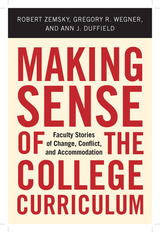
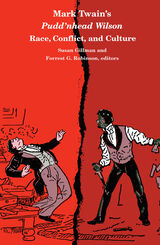
In a variety of ways the essays build arguments out of, not in spite of, the anomalies, inconsistencies, and dead ends in the text itself. Such wrinkles and gaps, the authors find, are the symptoms of an inconclusive, even evasive, but culturally illuminating struggle to confront and resolve difficult questions bearing on race and sex. Such fresh, intellectually enriching perspectives on the novel arise directly from the broad-based interdisciplinary foundations provided by the participating scholars. Drawing on a wide variety of critical methodologies, the essays place the novel in ways that illuminate the world in which it was produced and that further promise to stimulate further study.
Contributors. Michael Cowan, James M. Cox, Susan Gillman, Myra Jehlen, Wilson Carey McWilliams, George E. Marcus, Carolyn Porter, Forrest Robinson, Michael Rogin, John Carlos Rowe, John Schaar, Eric Sundquist
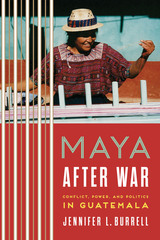
Guatemala’s thirty-six-year civil war culminated in peace accords in 1996, but the postwar transition has been marked by continued violence, including lynchings and the rise of gangs, as well as massive wage-labor exodus to the United States. For the Mam Maya municipality of Todos Santos Cuchumatán, inhabited by a predominantly indigenous peasant population, the aftermath of war and genocide resonates with a long-standing tension between state techniques of governance and ancient community-level power structures that incorporated concepts of kinship, gender, and generation. Showing the ways in which these complex histories are interlinked with wartime and enduring family/class conflicts, Maya after War provides a nuanced account of a unique transitional postwar situation, including the complex influence of neoliberal intervention.
Drawing on ethnographic field research over a twenty-year period, Jennifer L. Burrell explores the after-war period in a locale where community struggles span culture, identity, and history. Investigating a range of tensions from the local to the international, Burrell employs unique methodologies, including mapmaking, history workshops, and an informal translation of a historic ethnography, to analyze the role of conflict in animating what matters to Todosanteros in their everyday lives and how the residents negotiate power. Examining the community-based divisions alongside national postwar contexts, Maya after War considers the aura of hope that surrounded the signing of the peace accords, and the subsequent doubt and waiting that have fueled unrest, encompassing generational conflicts. This study is a rich analysis of the multifaceted forces at work in the quest for peace, in Guatemala and beyond.

Metropolitan Governance is the first book to bring together competing perspectives on the question and consequences of centralized vs. decentralized regional government. Presenting original contributions by some of the most notable names in the field of urban politics, this volume examines the organization of governments in metropolitan areas, and how that has an effect on both politics and policy.
Existing work on metropolitan governments debates the consequences of interjurisdictional competition, but neglects the role of cooperation in a decentralized system. Feiock and his contributors provide evidence that local governments successfully cooperate through a web of voluntary agreements and associations, and through collective choices of citizens. This kind of "institutional collective action" is the glue that holds institutionally fragmented communities together.
The theory of institutional collective action developed here illustrates the dynamics of decentralized governance and identifies the various ways governments cooperate and compete. Metropolitan Governance provides insight into the central role that municipal governments play in the governance of metropolitan areas. It explores the theory of institutional collective action through empirical studies of land use decisions, economic development, regional partnerships, school choice, morality issues, and boundary change—among other issues.
A one-of-a-kind, comprehensive analytical inquiry invaluable for students of political science, urban and regional planning, and public administration—as well as for scholars of urban affairs and urban politics and policymakers—Metropolitan Governance blazes new territory in the urban landscape.
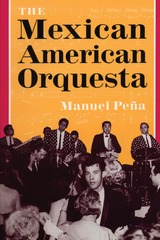
The Mexican American orquesta is neither a Mexican nor an American music. Relying on both the Mexican orquesta and the American dance band for repertorial and stylistic cues, it forges a synthesis of the two. The ensemble emerges historically as a powerful artistic vehicle for the expression of what Manuel Peña calls the "dialectic of conflict." Grounded in ethnic and class conflict, this dialectic compels the orquesta and its upwardly mobile advocates to waver between acculturation and ethnic resistance. The musical result: a complex mesh of cultural elements—Mexican and American, working- and middle-class, traditional and contemporary.
In this book, Manuel Peña traces the evolution of the orquesta in the Southwest from its beginnings in the nineteenth century through its pinnacle in the 1970s and its decline since the 1980s. Drawing on fifteen years of field research, he embeds the development of the orquesta within a historical-materialist matrix to achieve the optimal balance between description and interpretation. Rich in ethnographic detail and boldly analytical, his book is the first in-depth study of this important but neglected field of artistic culture.
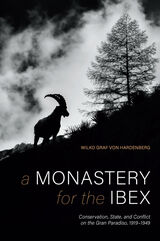
Gran Paradiso National Park is Italy’s oldest, and was instrumental in preventing the extinction of the Alpine ibex between World War I and just after World War II. Today, there are more than 30,000 ibex living in the Alps, all of which descended from that last colony protected in Gran Paradiso under Mussolini’s rule. Wilko Graf von Hardenberg merges the history of conservation with the area’s social history and Italy’s larger political history to produce a multifaceted narrative about the park as an institution, the conflicts it triggered, and practices adopted to manage the ibex despite hurdles placed by the fascist regime. The book’s central argument is that, in fascist Italy, preservation—propaganda notwithstanding—was a product of the regime’s continuities with the previous liberal system. Italy’s total fascist transformation, accomplished only more than a decade after Mussolini took power, virtually unmade the early successes of preservation set in place by the nascent “nature state” in the regime’s early years. Despite this conflict, conservationists succeeded in preserving the ibex. Hardenberg positions this success within the broader history of science, conservation, and tourism in fascist Italy and the Alpine region, creating a comprehensive historical background and comparative reference to ongoing debates about the role of nature conservation in general and in relation to the state and its agencies.

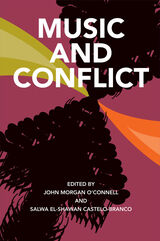
READERS
Browse our collection.
PUBLISHERS
See BiblioVault's publisher services.
STUDENT SERVICES
Files for college accessibility offices.
UChicago Accessibility Resources
home | accessibility | search | about | contact us
BiblioVault ® 2001 - 2024
The University of Chicago Press









